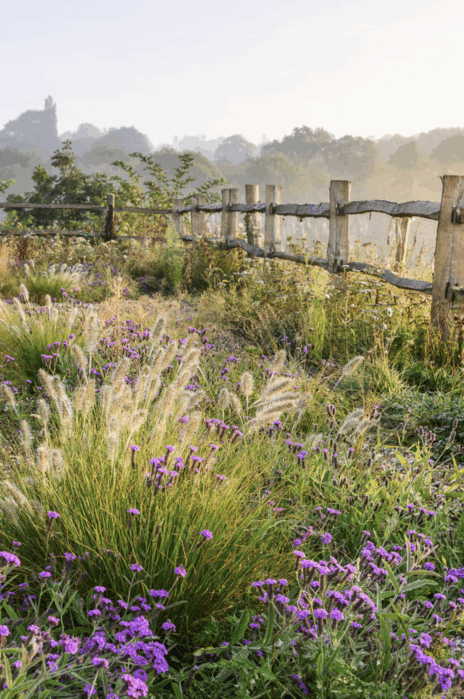The Kindest Garden – Top 10 Insights for Regenerative Gardeners
Like each branch is an integral part of a tree,
Every creature, human or non-human, is an integral organ of the Earth.
Satish Kumar
When you think of a garden, what do you think of? A place to relax, play or entertain? A place of reflection and refuge? Of abundance and celebration, or of learning and community? A place to grow flowers or food, or to watch wildlife? Or do you think of it as a burden, a list of chores, of overwhelm or disappointment? A ceaseless battle for order or harmony? It’s interesting to notice, without judgement, and to wonder whether how you feel about your garden at different times might reflect how you feel about life in general or yourself.
Here are ten ways to be kind to yourself and your garden. Add your own as you think of them.
1. Who are you gardening for?
- Think of all the beings, human and non-human, that you are gardening for – make sure you are on the list.
- Decide what your garden space will be, for them and for you – how will you know if it is working
2. Ways to be kind to yourself
- What would you do for, or say to, yourself if you were your own kindest friend, wise grandmother,loving granddaughter or son?
- Can you see your garden as an extension of yourself, a powerful little piece of the world, beyond the notion of boundaries – and extend that kindness out?
3. Ways to be kind to your soil microbes
- Feed them with organic matter and living compost inoculant.
- Use rainwater for watering the garden.
- Nurture them with layers of planting and living roots.
- Protect them from compaction with mulch.
- Disturb them as little as possible so they can thrive.
4. Ways to be kind to your gut microbes
- Eat many different fruit and vegetables; choose colour and scent for secondary metabolites; forage when possible and safe, to add more variety and plant phytonutrients.
- Filter mains water to remove chemicals before drinking.
- Make healthy compost to feed to the soil and your gut; close the loop.
- Avoid processed food and excesses of poisons like
5. Ways to be kind to your water
- Collect rainwater to use in the garden.
- Aim to limit use to 110 litres (24 gallons) of mains water per person per day.
- Install a compost loo if you have the space.
- Use bio-detergents to clean your house, clothes and body.
- Use chloramine-free rainwater, or add humic acid to tap-water before spreading it in the garden.
6. Ways to extend kindness to trees and all plant beings
- Use open-pollinated seed.
- Avoid genetically modified organism (GMO), neonicotinoid or other ’cide-doused seeds (cide is from the Latin for ‘to kill’).
- Plant in layers and be mindful of the archetypal communities your plants belong to – where might they rather be?
- Think of the whole tree or plant, from tip to roots and the soil around it.
- Protect tree roots and allow them to grow up with ‘friends and family’: that is, a mycorrhizal network.
7. Ways to be kind to the animals that share your space
- Share your food – avoid ‘-cides’ and grow enough to share with the creatures that coexist.
- Plant alternatives like nasturtiums (Tropaeolum) to offer to caterpillars instead of cabbages
- Use physical barriers like nets for prize plants you don’t want to share. Uncover them later in summer to allow pollination when enough predators are around
- Share your home: allow bees in lime mortar between bricks; allow wood to decay gradually to home insects like leafcutter bees; allow birds to nest under eaves; and give bats and insects crevices or boxes.
8. Ways to take care of your energy
- Solar energy
- Fossil fuels: use intentionally. Know how much you are consuming and where you might reduce.
- Energy stored in plants: try to return 70 per cent to the land as biomass and harvest 30per cent.
- Energy in the soil: protect the fungal hyphae below ground that amass carbon; minimise digging; and avoid poisoning the soil.
- Wind energy
- Direct the flow of wind in the garden to help shift a frost or cool a hot summer’s eve.
- Position filters like hedges and trees to deflect wind from channelling into wind tunnels or tree flatteners.
- Land energy
- Design for flow, for prospect and refuge, for yin and yang, to create healthy spaces for humans and animals.
- Human energy
- Ground your body and rest your mind regularly.
- Take care of your gut biome and your outer biome.
- Keep healthy boundaries and seek connection to the natural world.
- Find friends that love what you love!
9. Share your knowledge and ask for help
- Join a garden group or forum and organise a seed swap or perennial plant split, or go on visits to learn from other growers.
- Join a regenerative growers’ cluster group.
- Share what’s in season, what’s good to forage and where and when.
10. Be the kind of ancestor you’d like to be.
- The Earth does not belong to us. We belong to the Earth.
Celtic saying
Photo © Jason Ingram.
